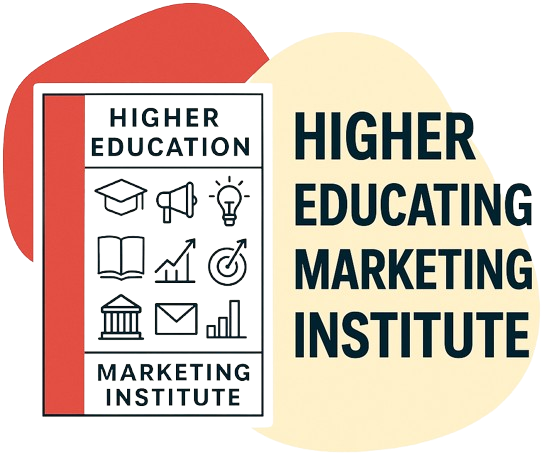Common themes:
- Importance of advanced data integration and analytics.
- Focus on aligning metrics with strategic goals and outcomes.
- Use of predictive modeling and AI in CRM.
- Need for standardized industry-wide metrics.
- Emphasis on enhancing student success and ROI.
Surprising points:
- Significant struggle with accurately attributing conversions to specific marketing efforts.
- Desire for benchmarking and industry standards.
- Shift from traditional metrics like brand awareness to outcome-oriented metrics.
- Holistic approach combining qualitative and quantitative data.
- Call for collaborative efforts between institutions, associations, and vendors.

Next Level Strategies in CRM for Higher Education: Advanced Data Integration and Engagement Analytics
Higher Education Marketing
Synopsis:
- The article discusses the importance of advanced data integration and engagement analytics in CRM strategies for higher education institutions.
- It highlights the need for colleges and universities to effectively integrate data from various sources, such as enrollment data, student records, and marketing campaigns, to gain a holistic view of students and improve engagement.
- The author emphasizes the role of engagement analytics, using tools like CRM systems, in analyzing and leveraging data to personalize communication, track student interactions, and measure campaign effectiveness.
- The article provides insights on how higher education institutions can leverage advanced strategies, such as predictive modeling and artificial intelligence, to enhance their CRM capabilities.
- The author suggests that by employing advanced data integration and engagement analytics, colleges and universities can improve student success, retention rates, and overall marketing ROI.
Background resources:
- CRM systems
- Data integration in higher education
- Engagement analytics
Noteworthy positions taken by the author:
- The author highlights the importance of advanced data integration and engagement analytics in driving CRM strategies for higher education.
- They advocate using predictive modeling and artificial intelligence to enhance CRM capabilities in the sector.
- Emphasis is placed on the potential benefits for student success, retention rates, and marketing ROI.
Summary and takeaways:
- Higher education institutions can benefit from advanced data integration and engagement analytics in their CRM strategies.
- Integrating data from various sources allows for a holistic view of students and enhances engagement efforts.
- Engagement analytics provide insights into personalized communication, student interactions, and campaign effectiveness.
- Predictive modeling and artificial intelligence can further enhance CRM capabilities.
- Improved student success, retention rates, and marketing ROI can be achieved through these advanced strategies.
“🎓⚡ Next Level CRM for Higher Ed: Advanced data integration & engagement analytics drive student success and ROI. 📊📚 #HigherEd #CRMstrategies”
Tweet

Higher Ed Marketing Metrics Research Study: What Gets Measured Gets Managed – UPCEA and Search Influence (March 2024) – UPCEA
UPCEA
Synopsis:
- The article discusses the findings of a research study conducted by UPCEA (University Professional & Continuing Education Association) and Search Influence on marketing metrics in higher education.
- The study aimed to identify the key metrics that institutions measure, how they use the data, and the challenges they face in measuring marketing effectiveness.
- A survey was conducted among 300 higher education marketing professionals across the United States.
Key Findings:
- Most institutions focus on measuring website analytics, social media engagement, and lead generation as their top marketing metrics.
- However, many struggle with accurately attributing conversions to specific marketing efforts and lack integration between various data sources.
- The study highlights the importance of aligning marketing metrics with strategic goals and utilizing marketing automation tools to streamline data collection and analysis.
- Notably, a significant portion of respondents expressed a desire for benchmarking and industry-wide standards for higher education marketing metrics.
Noteworthy Positions:
- The authors emphasize the need to shift from traditional metrics like brand awareness and reach to more outcome-oriented metrics that demonstrate the impact of marketing efforts on enrollment, student outcomes, and revenue.
- They advocate for a holistic approach, combining both qualitative and quantitative data, to gain a comprehensive understanding of marketing effectiveness in higher education.
- The study calls for collaborative efforts between institutions, industry associations, and vendors to develop standardized metrics that can be benchmarked across the higher education sector.
Takeaways:
- Higher education institutions should focus on aligning marketing metrics with strategic goals and outcomes, rather than solely measuring superficial metrics like website traffic.
- Integrating data sources and utilizing marketing automation tools can enhance data accuracy and improve the tracking of conversions and ROI.
- The higher education sector should collaborate to establish benchmarking standards and industry-wide metrics, allowing institutions to compare their marketing efforts and assess their effectiveness.
“📊🎓 Higher ed marketing needs a shift: focus on outcomes, not numbers. Collaborate for standards. #HigherEdMetrics #MarketingEffectiveness”
Tweet




